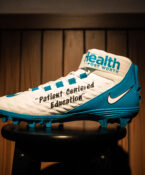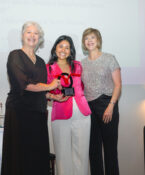Health tip: Vaccination is the best way to sidestep measles
| David Lar, MD |
A UNT Health Science Center physician says prevention is not only the best defense but just about the only one for measles, a contagious disease that has seen an unexpected resurgence in Tarrant County.
Tarrant County Public Health reported 15 cases of measles this week, including eight in which the patients were not immunized. The cases have been linked to an area resident who recently traveled abroad.
"You’ve got to get immunized. Prevention is always the best medicine," said David Lar, MD, Assistant Professor of Pediatrics. "There’s isn’t a good treatment once you have contracted measles."
Immunization guidelines: Children should receive their vaccinations at their one-year checkup and then a second dose between ages 4 and 6, Dr. Lar said.
Transmission: The Centers for Disease Control and Prevention says 90 percent of people who are close to an infected person will acquire measles if they are not immunized. It can be spread beginning about four days before the rash appears until about four days after it appears.
"It is one of the most contagious illnesses that we know of," Dr. Lar said. "It is transmitted by direct contact with infectious droplets from coughing and sneezing."
Indications: Generally, measles symptoms appear in two stages. The first stage occurs within the first four days of infection and involves runny noses, coughs, conjunctivitis (red, watery eyes) and a mild to moderate fever. Stage 2 also lasts for about four days and includes a rash that starts at the head and spreads downward through the rest of the body, accompanied by a spike in fever.
Complications: In some cases, measles can lead to pneumonia, seizures, brain infections and miscarriages. Such complications are more common in children younger than 5 and older than 20. Individuals with underlying medical conditions, such as those with compromised immune systems, are at higher risk of developing complications. Pregnant women are at higher risk of miscarriage, premature birth or having a low birth-weight baby because of measles, according to the CDC.
Infants and younger children are the most vulnerable, but anyone under 20 is generally more susceptible than an adult, Dr. Lar said.






Social media